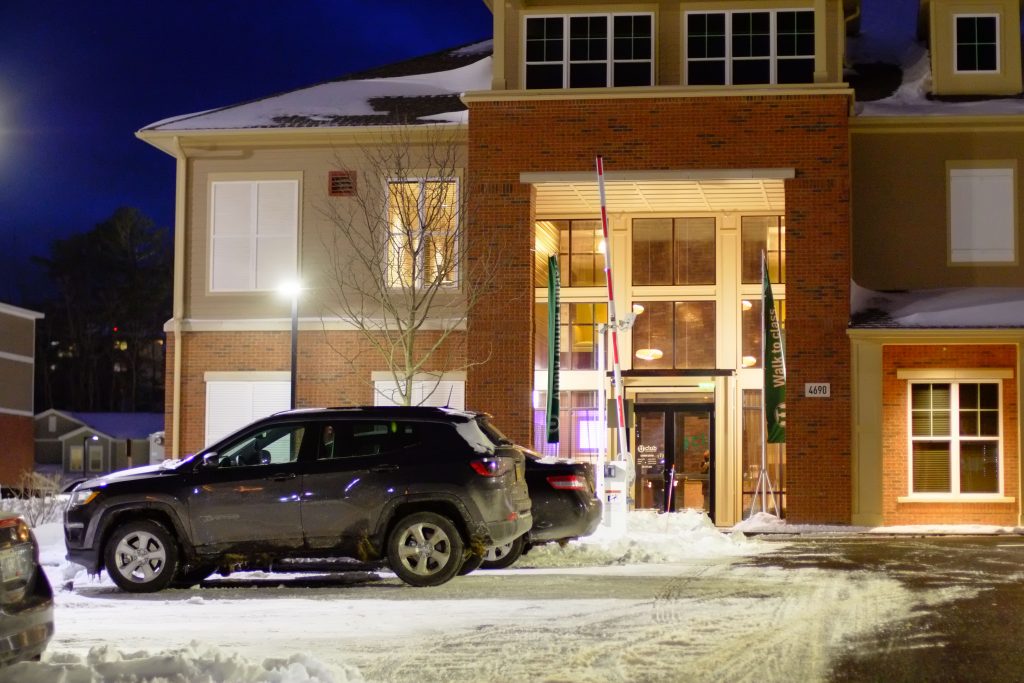
Carly Alsofrom is ready for her study abroad experience in Florence this semester. She’s been planning her trip to the capital of Italy’s Tuscany region since early last year.
But one problem remains: she hasn’t found someone to sublet her apartment.
Alsofrom, a junior majoring in nursing, pays $650 a month for her room in Downtown Binghamton and is bound by her lease to pay the rent until the end of August. Now, she has only two options: pay rent for a room she won’t be living in, or sublet to some else.
Her problem is a symptom of the Binghamton area’s saturated student housing market ― there are more rooms in luxury housing complexes and neighborhood houses than students to fill them.
“It’s hard to sublet ― it’s not easy,” said Milton Chester, assistant dean for off-campus programs and services. “Especially here, because there is more housing than there is demand, so students have options besides sublets.”
Subletting occurs when a tenant rents out a property to another person, usually someone whose name is not on the original lease. The tenant then collects rent from the person subletting, and pays their landlord or rental company.
At Binghamton University, the majority of students who sublet their rooms are studying abroad. Other students decide to sublet after transferring schools or encountering roommate conflicts. Students living on campus planning to study abroad are permitted to leave their room without facing penalties. But students who sign year-long leases off campus don’t have that option.
Chester said his office usually sees approximately 80 students trying to sublet rooms or apartments each semester.
“Usually, the heaviest time is after the fall semester, when they want to study abroad,” Chester said. “When you leave the country, you leave the latter half of your lease to contend with.”
To find subletters, students rely on a combination of Facebook, Craigslist and other online forums to post advertisements for their rooms. One Facebook group, “Off-Campus Housing in Binghamton,” sees multiple posts per day from students looking for subletters. Students looking for rooms, on the other hand, are far from common.
Abbey Bodeker, a junior majoring in biology, said that working through these websites draws attention to her sublet advertisement, but also forces her to weed out illegitimate offers.
“I have had a number of offers,” Bodeker said. “Some haven’t followed through, and others haven’t offered to cover even half of the rent so I am reluctant to accept those offers.”
According to Chester, the University offers the Housing Registry, an online housing database where students can post advertisements and search for housing.
“One of the things I tell students to do is stick with the Housing Registry, instead of going to places like Craigslist, where there can be scams,” Chester said. “I encourage them to work within the framework we set up.”
Many students also agree to give substantial discounts on rent in an effort to attract potential subletters. Alsofrom said she offered a discount on her rent in hopes that she could better compete with other sublet offers.
“It has not been as easy as I expected it to be,” Alsofrom said. “I have seen some interest in my room, but not much. I have been also willing to drop the monthly rent by over $150 a month and I still haven’t found anyone.”
But despite posting advertisements and offering low rents, many students are still unable to successfully sublet. Chester said he encourages students to try and plan ahead to avoid having to sublet their rooms, and to try to find rooms to rent on a half-year lease or month-to-month basis.


